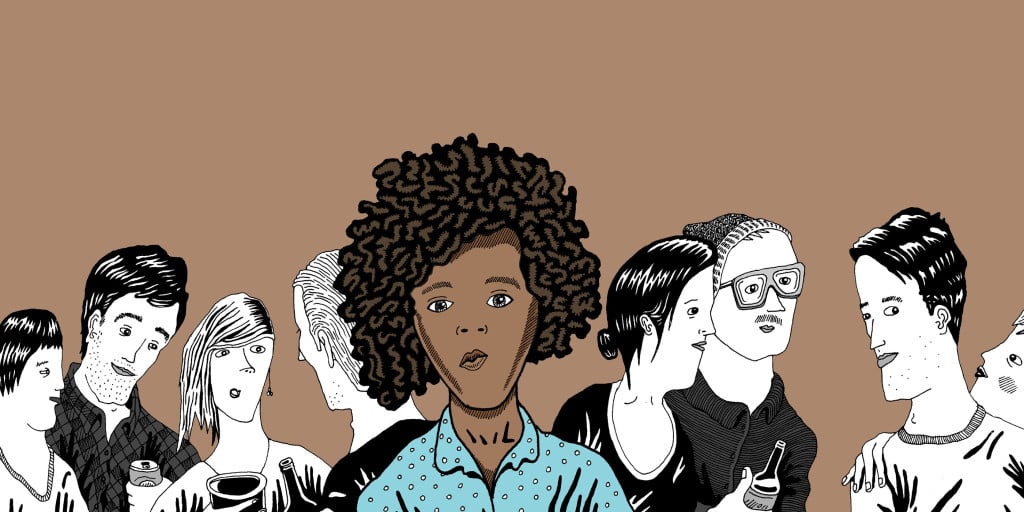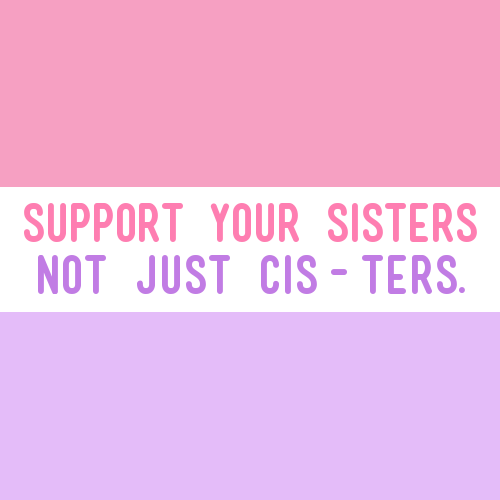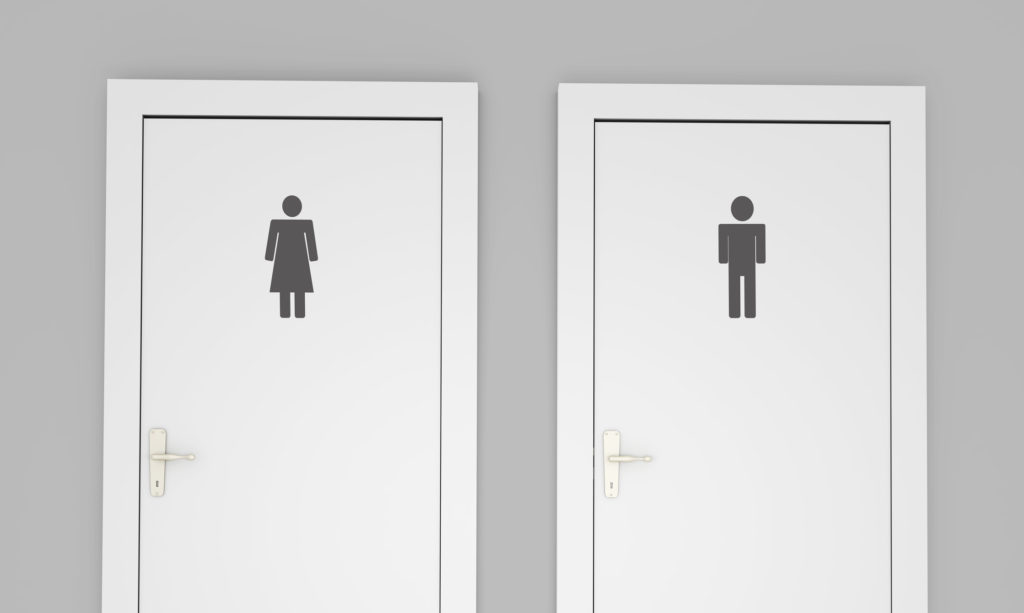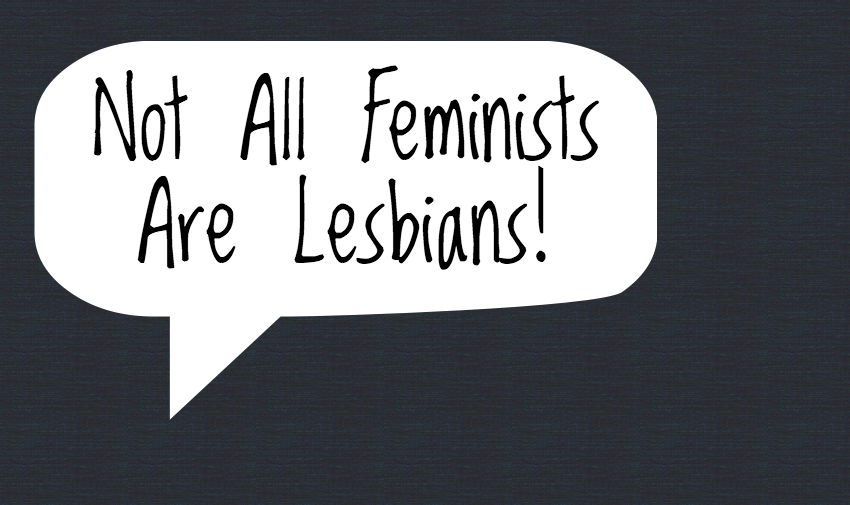Search results for: pregnant women
No, The Existence of Trans People Doesn’t Validate Gender Essentialism
Allyship with trans people is a core component to intersectional feminism. Yet there is still one question that consistently comes up: “Don’t trans people validate that men and women must exist within certain societal roles? Doesn’t it perpetuate gender essentialism?” Not so fast. Read on to understand how supporting diverse experiences obliterates essentialism.
Read MoreFat Men Are a Feminist Issue
Fatphobia in so many ways is about hating and policing women and our bodies, but what I’ve realized recently is that the fatphobia that fat men experience is also a result of misogyny. I have found many themes that pointed to fatphobia toward men, at its roots, being about anxiety that men were becoming woman-like. Ultimately, I believe that the treatment of fat men is a feminist issue.
Read MoreDo You See These 10 Everyday Sexisms?
When women take note of sexism during their daily lives, they stop accepting it as “normal.” But, in general, sexism, so densely woven into our habits, language, and traditions, is a subtle and slippery thing. Research shows that most people don’t see sexism even when it’s right in front of their noses. How do you think about and respond to these 10 everyday sexisms?
Read MoreStill Think Rape Jokes Are Harmless Fun?
Some people think its funny when boys joke about rape. They argue that people who speak out against those jokes, and the culture that encourages and allows them, are humorless. But those boys eventually turn into teenagers and men, some of whom DO commit actual sexual violence that predominately, but not exclusively, target women. This must stop now!
Read MoreThis Is Why Being a Nice Guy Just Isn’t Enough
Nice guys, we know you’re out there. Misogynistic Nice Guys™ have earned a bad reputation, but there’s a difference between them and men who are genuinely respectful. But did you know there’s also a difference between being nice and being an ally to women’s causes? Here’s what you need to know to avoid the unintentional sexism that can come with gender socialization.
Read MoreDenial
When I worked as a call girl, I relied on, and needed, denial to function in life. It was essential in order to work – to have sex with men and women I didn’t want to have sex with. That is what allowed me to do it without breaking, without falling apart, without realizing the hell in which I was living (Trigger Warning).
Read MoreWho Is Sandra Fluke? What She Means To A Young Woman In America
I remember the first time I heard Sandra Fluke tell the story of her her friend who needed contraception to manage her painful polycystic ovary syndrome. I remember why she spoke in the first place – because women still live through harsh realities, realities we have the power to change with a voice and a vote.
Read More3 Ways To Tell The Difference Between Appreciation of Beauty and Sexual Objectification
We want to appreciate beauty, and part of that is taking in the physical beauty of the people around us. But our actions never exist in isolation. Wandering eyes exist as part of a daily onslaught women face where their bodies are treated as public property, objectified in the media and in the eyes of many men. So how can we responsibly navigate the difference?
Read More6 Racist and Sexist Things You Should Never Say to a Mixed Race Woman
Wanna find out why “you’re so exotic” is not a compliment? Most of the comments mixed race women get don’t come from a place of malice or hatred, but a lack of understanding. And navigating a multi-racial identity can be hard enough without factors like racism and sexism. So avoid being racially sensitive by starting with Marina Watanabe’s tips on what not to say.
Read MoreIf We Divide, We Don’t Conquer: 3 Reasons Why Feminists Need to Talk About Race
Believing that feminism should address only sexism, some feminists are hesitant to include working to end racism when working to end patriarchy. But if we want to end sexism and support all women, we absolutely must include anti-racism work into our feminism. If you’ve ever wondered what racial justice conversations have to do with feminism, here are your answers.
Read More10 Responses to the Phrase ‘Man Up’
It’s the favorite advice of patriarchal misogynists everywhere: “Man up.” (See also: “Grow a pair,” “Be a man,” and “Stop acting like a girl.”) This phrase presents a view of masculinity that is oppressive to not just women and gender non-conforming people, but to men as well. Check out Guante’s kick*ss poem with ten ways to respond to this so-called “advice.”
Read More3 Ways to Rethink Masculinity as a Newly Masculine-Presenting Person
We sometimes think that issues of sexual entitlement and objectification are purely a problem with men, but the reality is masculine women do it, too. As I’ve become more vocal about my masculinity, my feminism has had to change from a feminism of solidarity to a feminism of recognizing that I’m different, and I that need to own that and change my behavior.
Read MoreSingle and Childfree: I Know What You’re Thinking
In our patriarchal society, women are expected to get married and have children. So when we don’t, people start to get confused, as this author has often experienced. When people find out she’s single and childless, people try to figure out what’s wrong with her or at the very least, what she’s doing wrong. Here she unpacks why that behavior is problematic and sexist.
Read MoreWhy the Feminist Movement Must Be Trans-Inclusive
Despite what we like to think, feminism is not always the inclusive space that we want it to be. It can actually be an unsafe place for those seen as outsiders. A small (but vocal!) minority of feminists has a history of purposefully excluding trans struggles from feminism. And not only is this harmful for trans people, but it actually weakens feminism. Here’s why.
Read More4 Common Phrases That Demonstrate Internalized Misogyny
“#1: I’m not like other girls.” When the world tells you that you’re inferior, it’s hard not to start believing it – and these phrases can show that you’re internalizing some harmful messages.
Read MoreReady to Ditch White Feminism? 6 Black Feminist Concepts You Need to Know
If you don’t recognize yourself in white feminism, you’re not the only one. These Black feminist concepts show that we have other options.
Read More7 Reasons People Argue That Female Privilege Exists – And Why They’re Mistaken
Does female privilege exist? The short answer is no. But people cite chivalry, free drinks at the bar, and more to say that it does – and here’s what their arguments are missing.
Read MoreHow Male Sexual Entitlement Hurts Everyone
Male sexual entitlement is the belief that men are owed sex on account of their maleness. So let’s go into how male sexual entitlement negatively impacts everyone, men included.
Read MoreHow Did Public Bathrooms Get to Be Separated By Sex in the First Place?
Think it’s just “natural” to separate bathrooms by sex? This info on the sexism behind it will make you think again – with even more evidence of why trans restroom access matters.
Read More3 Things ‘We’re Not All Lesbians’ Is Really Saying (And Why It’s Anti-Feminist)
Dispelling anti-feminist myths can look like proving we’re not all bra-burning, man-hating lesbians. But do you know what you’re implying the with “we’re not all lesbians” defense?
Read More




















